Desulphurization
Flue gas/exhaust air purification
Desulphurization
- Dust filter
- Column scrubber
Dust filter
The flue gas is exposed to a reagent that is introduced dry, semi-dry or wet. It is important for the variants that are operated with water (semi-dry, moist) that the water has evaporated by the time it hits the filter medium. Otherwise the reagent will encrust on the filter medium and can block the filter medium so that less or no flue gas passes through the medium.
The reagent binds and reacts with the pollutants, which are then discharged from the filter as solids.
Column scrubber
Sodium hydroxide (NaOH, caustic soda) is inoculated into the circulation water of the scrubber, which reacts with the acidic pollutants in the exhaust air. These compounds are discharged via the waste water.
At higher inlet temperatures, this process consumes a relatively large amount of fresh water, as only droplets and therefore a small proportion of the evaporated water can be recovered via the demister.
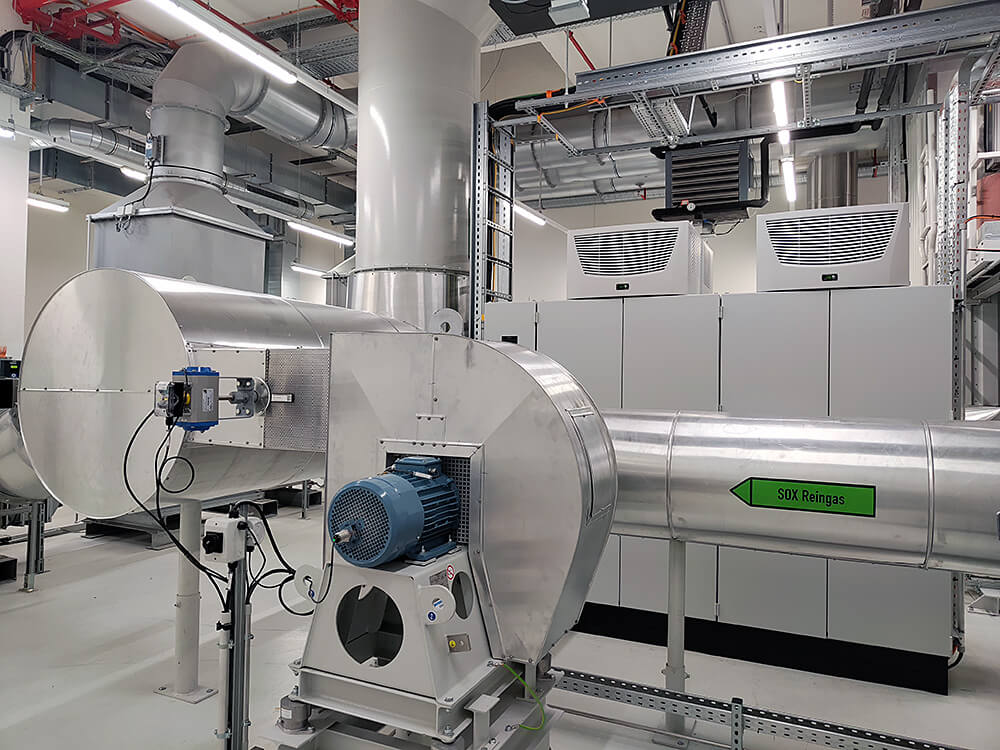
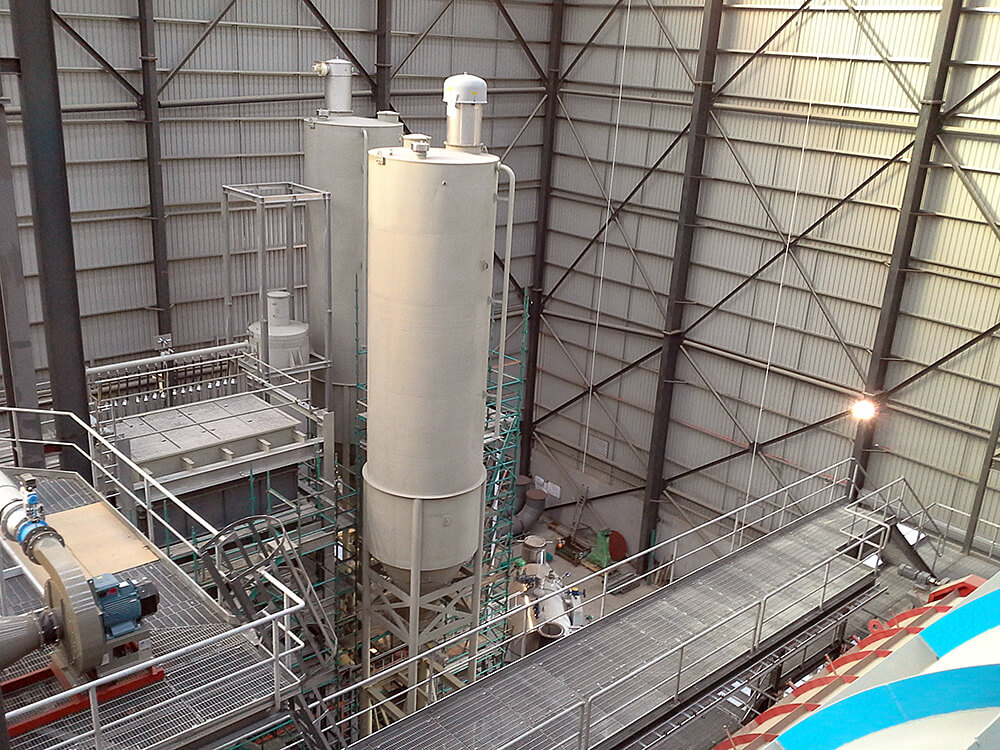
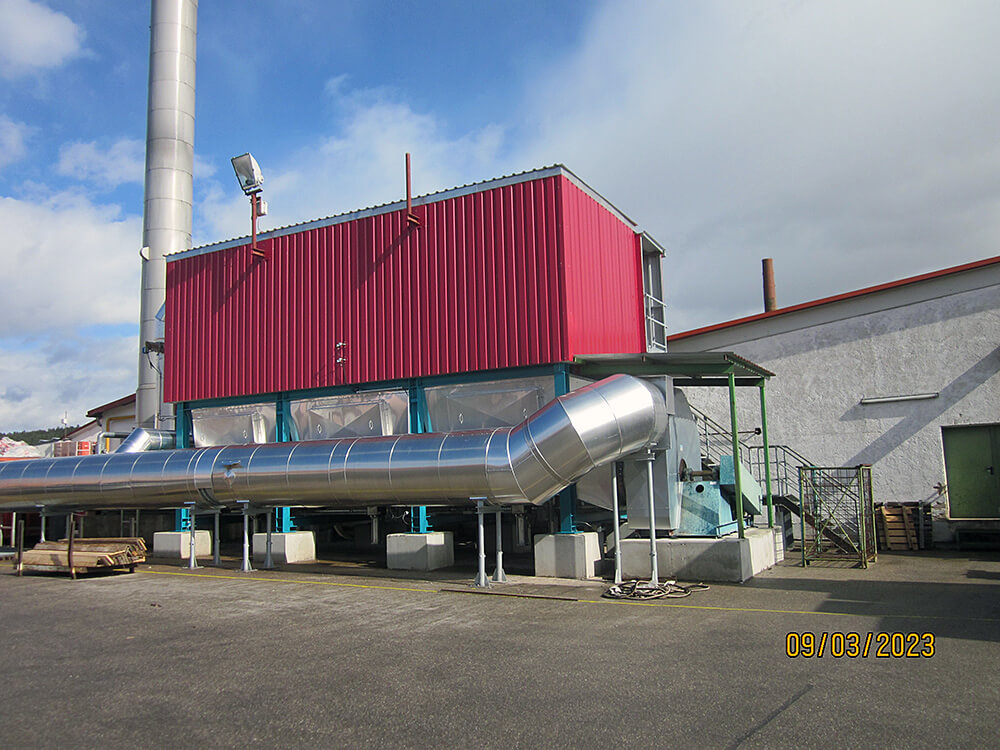
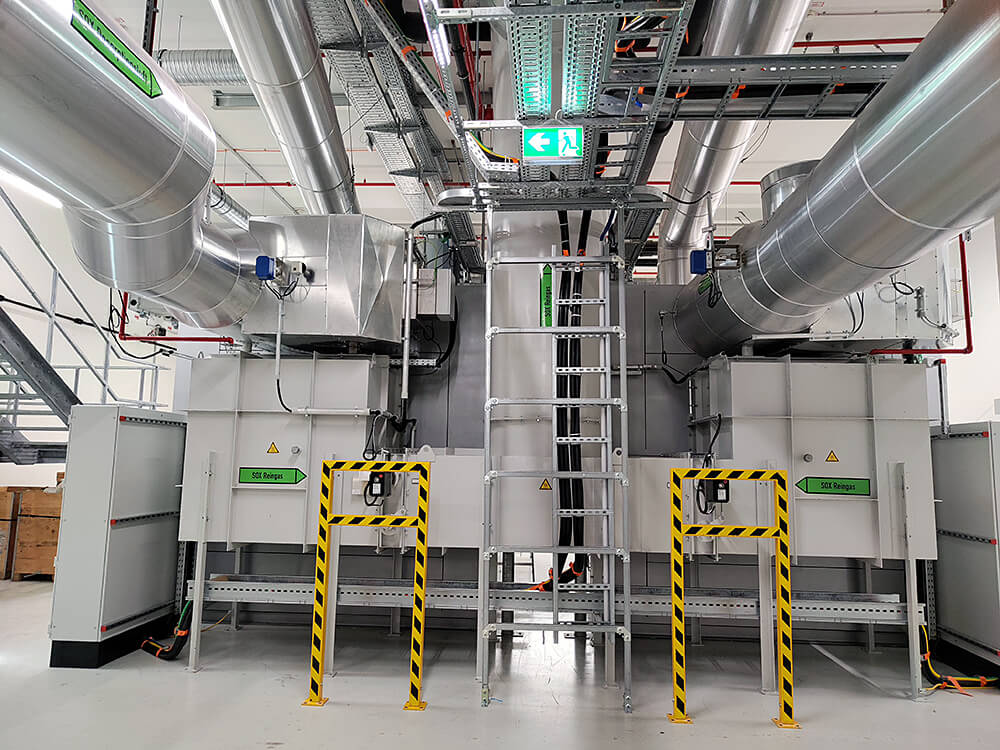
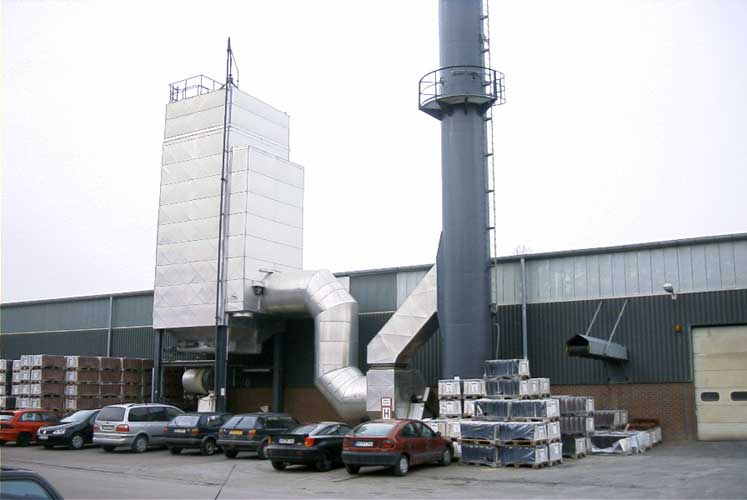
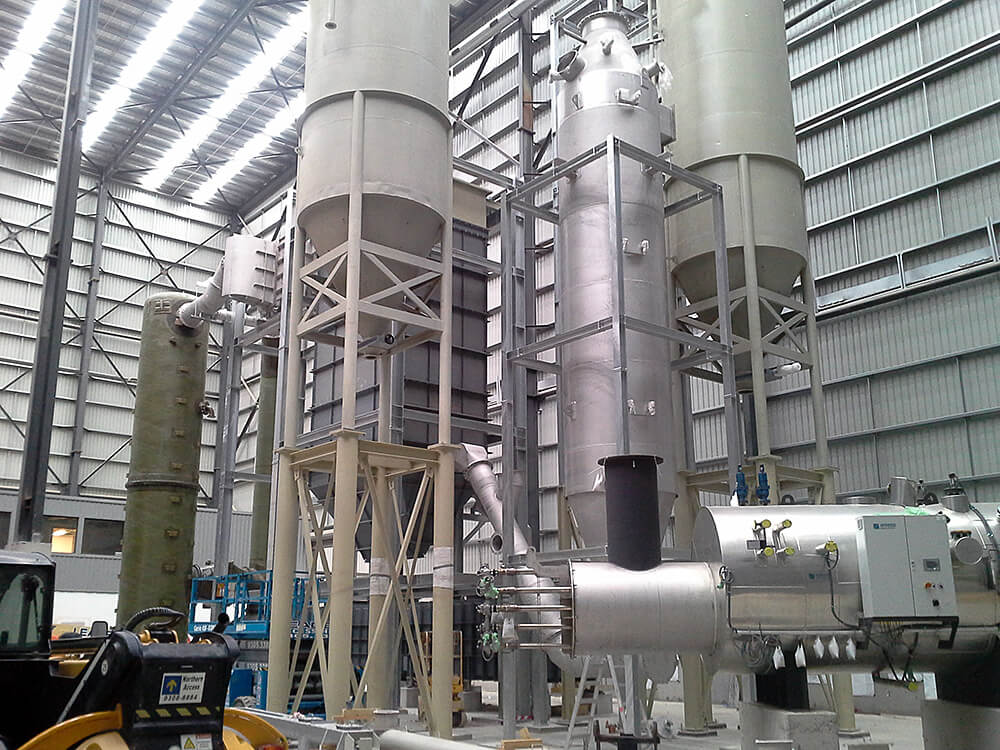
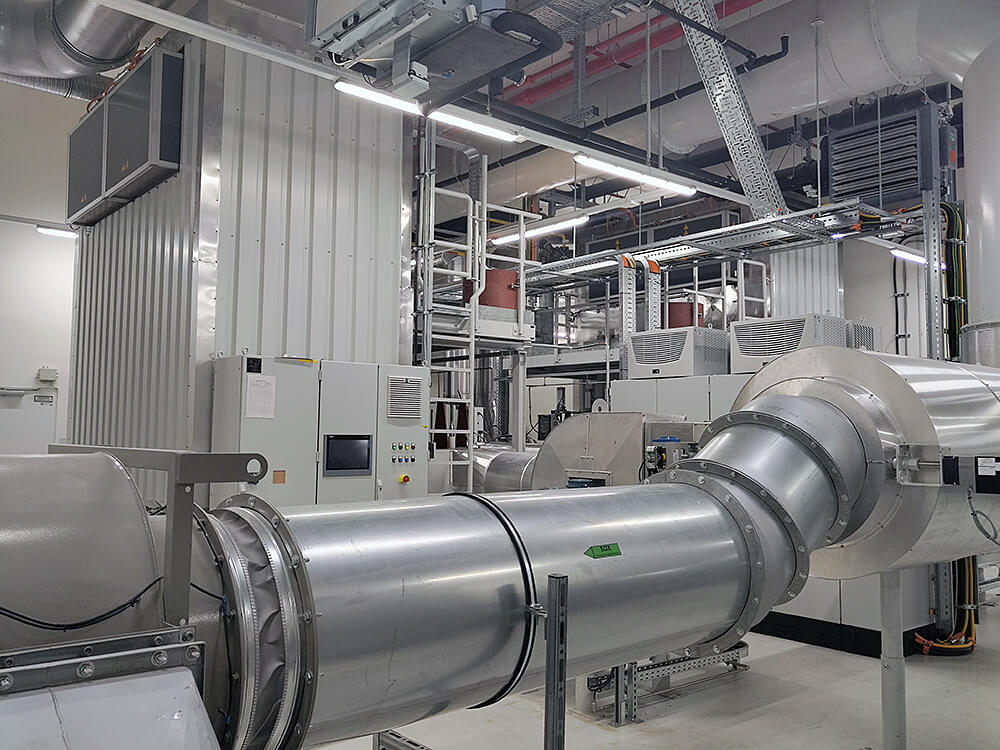
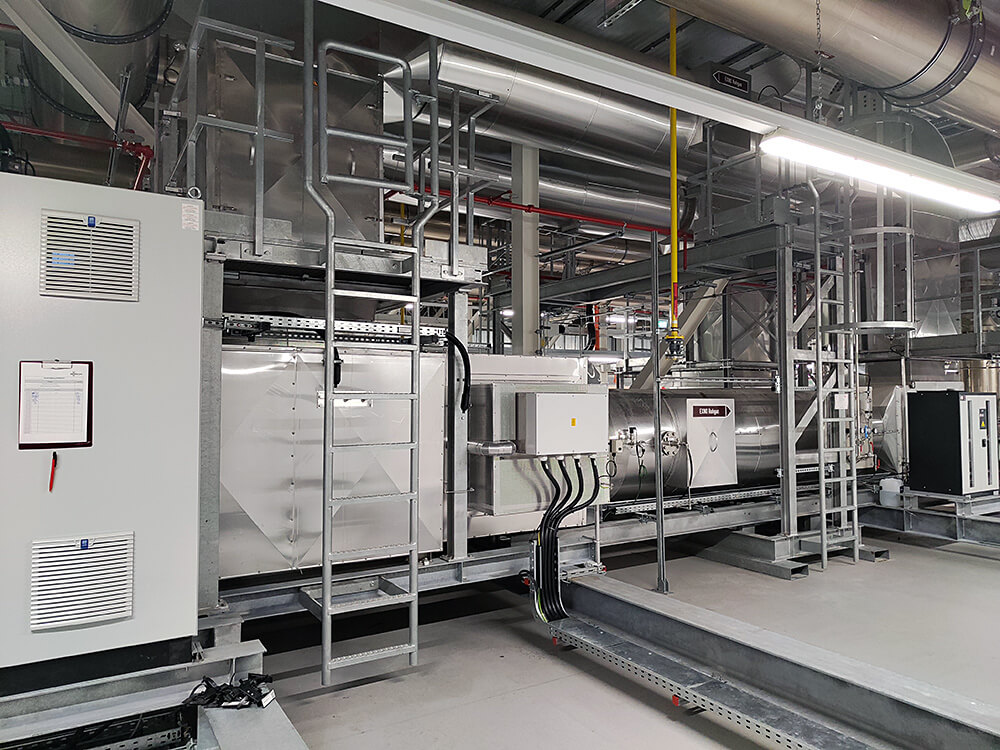
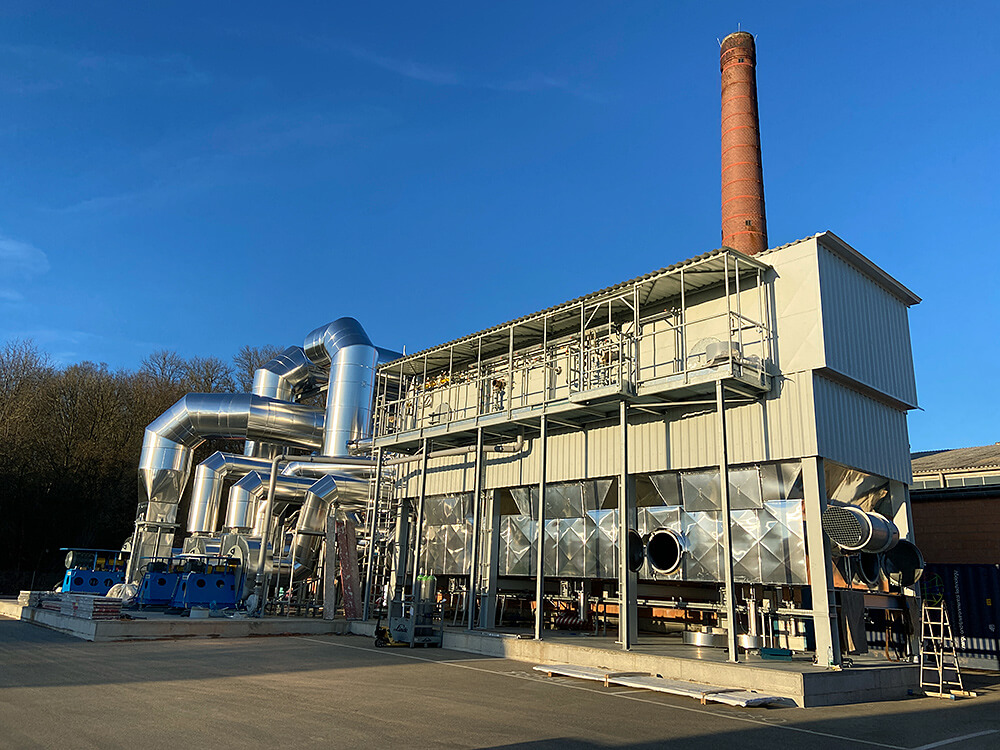
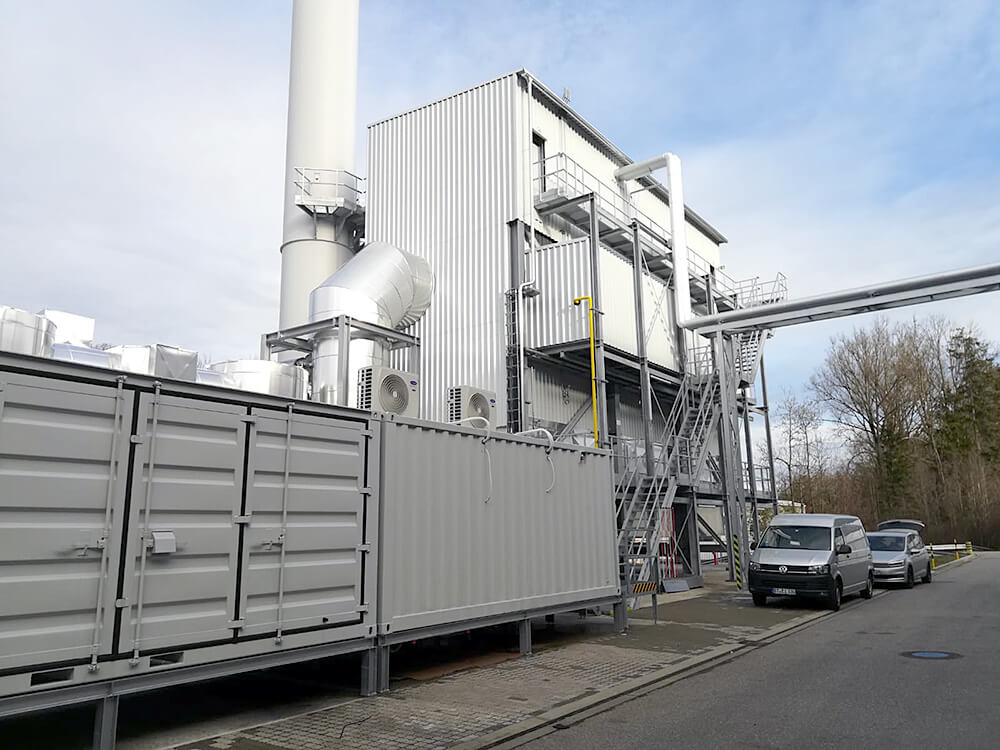
Contact
